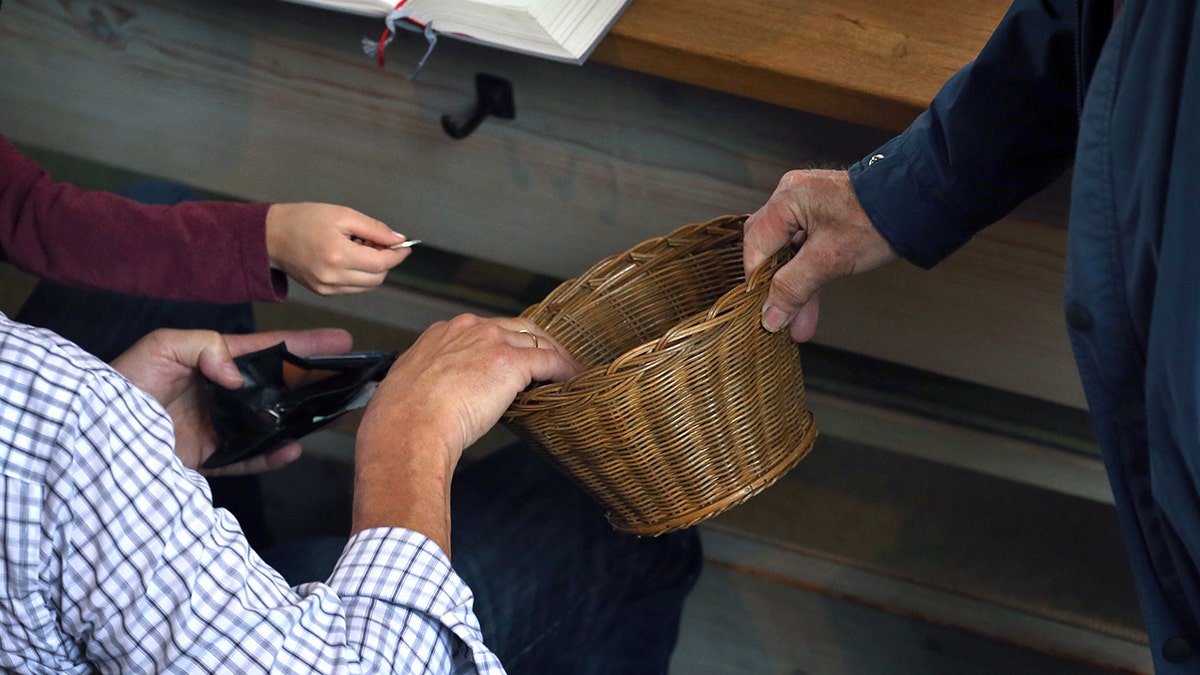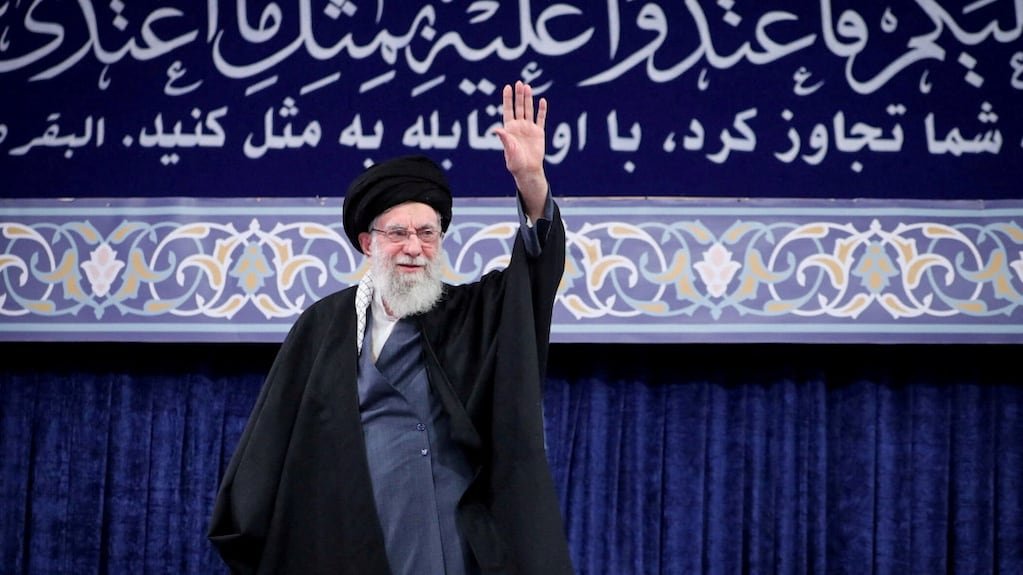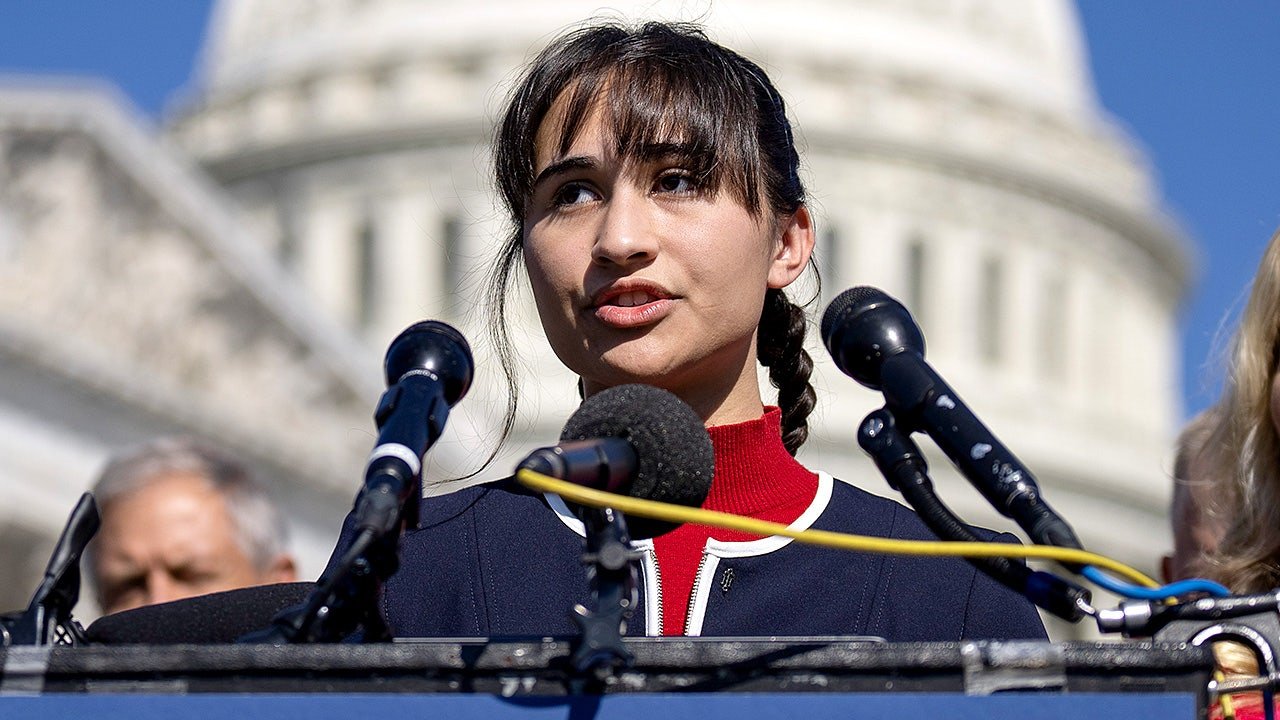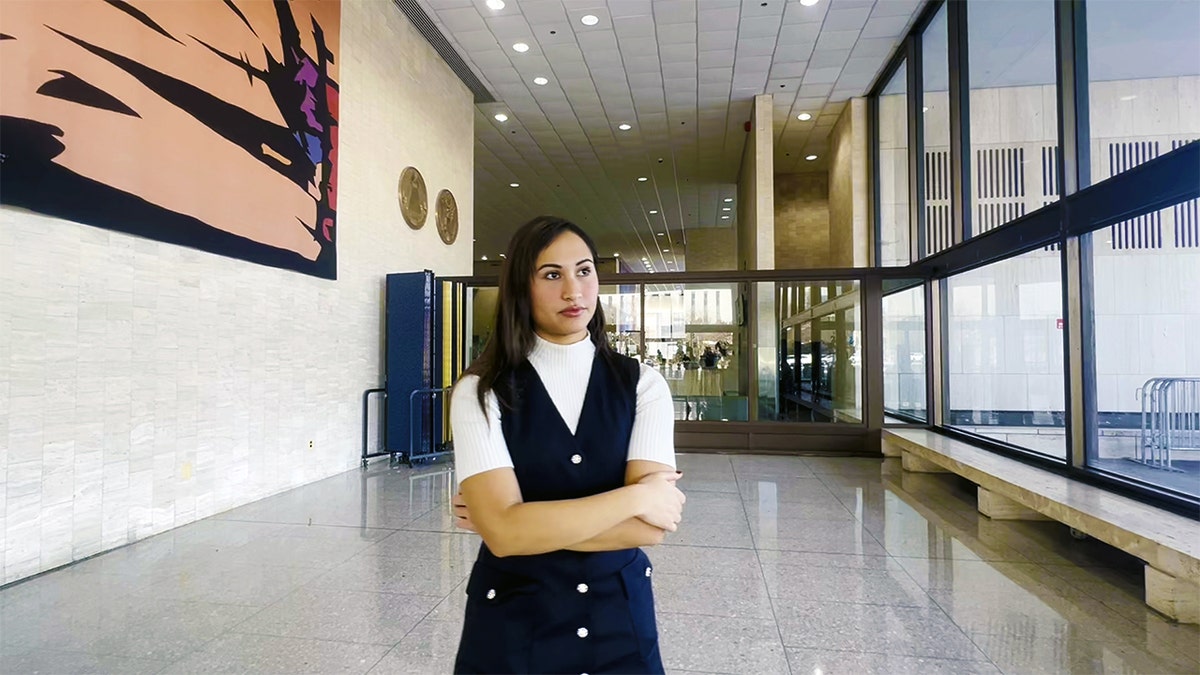INTERNACIONAL
The pope’s salary: How does the pontiff get paid?

The leader of the Roman Catholic Church does not get paid what many consider a traditional salary. Instead, the Vatican provides for the pontiff’s needs, from housing, food, transportation and other expenses in the form of stipends and allowances.
The Vatican, referred to as «the world’s smallest country,» is sustained by «an economy that relies on a combination of donations, private enterprises, and investments to generate revenue,» according to Investopedia.
Pope Francis declined any sort of salary when he took office in 2013, The Economic Times reported back in February, adding that the pontiff at the time had a net worth of «around $16 million, which includes various assets provided to him as the pope.»
The Vatican’s financial situation has been in peril for years, with its annual operating deficit growing to over $90 million in 2023, according to reports. In November, Pope Francis warned that the Vatican’s pension fund — which provides pensions to employees of the Holy See and Vatican City State — has been facing a «severe prospective imbalance» that «tends to grow over time in the absence of interventions,» according to the Vatican News.
LIVE UPDATES: ‘EXTRA OMNES’ ORDER GIVEN, OFFICIALLY BEGINNING PAPAL CONCLAVE
This photograph shows tourist goods including post cards (R) on stands, with St Peter’s Basilica of The Vatican in the background, in Rome on May 5, 2025. (GABRIEL BOUYS/AFP)
The governing body of the Vatican, also known as the Holy See, doesn’t provide exact numbers regarding its finances. However, the Central Intelligence Agency’s World Factbook estimated its revenues and expenditures in 2013 notched $315 million and $348 million, respectively.
It generates this money through various avenues. According to the Michigan Journal of Economics, the Holy See generates some of its revenue through Peter’s Pence, which is a term that describes donations collected from Catholics around the world and given to the Pope on an annual basis. This accounts for $27 million each year, with the largest contributions deriving from the United States, Germany and Italy, according to American Magazine.
WHAT IS THE PAPAL CONCLAVE: INSIDE THE ANCIENT PROCESS OF CHOOSING THE NEXT POPE

Rosary beads depicting Pope Francis were offered for one euro on March 17, 2025, in Vatican City, Vatican. (Christopher Furlong)

A young visitor of a Catholic Church service donates money into a basket handed around in Bavaria, Kaufbeuren, in July 2019. ( Karl-Josef Hildenbrand/picture alliance)
CLICK HERE TO GET THE FOX NEWS APP
Fox News Digital reached out to the Vatican and United States Conference of Catholic Bishops for more information about how the pope gets paid, but did not immediately hear back.
INTERNACIONAL
Máxima tensión: Irán advirtió que responderá con fuerza a cualquier ataque contra su territorio

Mientras se aguardan nuevas conversaciones bilaterales para este jueves, Irán alertó que responderá “con fuerza” a cualquier ataque a su territorio, aunque sea limitado. La advertencia se conoció después de que Donald Trump amenazó con lanzar una acción militar de ese tipo.
El presidente estadounidense, que presiona a Irán para alcanzar un acuerdo sobre su programa nuclear, ordenó un fuerte despliegue naval y aéreo en Oriente Medio.
Leé también: Ola de violencia en México: hay al menos 58 muertos y 41 detenidos tras el asesinato del narco “El Mencho”
“No hay un ataque limitado. Un acto de agresión se considerará un acto de agresión. Punto final”, declaró el portavoz del Ministerio de Relaciones Exteriores iraní, Esmail Baqai, en rueda de prensa en Teherán.
El vocero contestó así cuando le preguntaron por las declaraciones de Trump, quien dijo el viernes que “considera” un ataque limitado contra Irán si este país no alcanza rápidamente un acuerdo con Estados Unidos.
“Cualquier Estado reaccionaría con fuerza a un acto de agresión en virtud de su derecho inherente a la legítima defensa, y eso es precisamente lo que haríamos”, recalcó Baqai.
Evitar una “escalada”
Por su parte, el viceministro iraní de Relaciones Exteriores, Kazem Qaribabadi, advirtió del riesgo de una “escalada” más allá de las fronteras de su país en caso de ataque. Además, llamó “a todos los países comprometidos con la paz y la justicia a tomar medidas significativas” para evitarlo.
En tanto, “por prudencia”, Estados Unidos ordenó la evacuación del personal no esencial de su embajada en Beirut, mientras que el movimiento libanés proiraní Hezbollah anunció que no permanecería neutral si Washington ataca.
Un iraní sostiene un retrato del líder supremo, el ayatolá Alí Jamenei, entre banderas nacionales durante una manifestación en Teherán (Foto: EFE)
El jueves, el presidente estadounidense indicó que se daba un plazo de diez a quince días para decidir sobre un eventual recurso a la fuerza contra Teherán.
Estados Unidos e Irán celebraron el 17 de febrero en Suiza una segunda ronda de negociaciones indirectas, bajo mediación de Omán, sobre el programa nuclear de Teherán en un momento de gran tensión después de que Washington desplegara dos portaviones en la región.
La próxima sesión de conversaciones tendrá lugar este jueves, confirmaron Irán, Omán y Estados Unidos.
Leé también: Escándalo en el Reino Unido: detuvieron al exembajador en EE.UU. por sus vínculos con Jeffrey Epstein
El jefe de la diplomacia iraní, Abás Araqchi, encabeza las negociaciones por parte de Teherán, mientras que Estados Unidos está representado por el emisario Steve Witkoff y el yerno del presidente estadounidense, Jared Kushner.
El canciller iraní consideró el domingo que existían “buenas opciones de llegar a una solución diplomática en la que todos ganen”. Araqchi afirmó que esperaba entregar pronto “una primera versión” del texto al equipo estadounidense.
Las anteriores conversaciones entre ambos países se vieron interrumpidas en junio de 2025 por la guerra desencadenada por Israel contra Irán, en la que intervino Washington bombardeando instalaciones nucleares de la república islámica.
Nuevas manifestaciones
La tensión entre Estados Unidos e Irán se agravó tras la sangrienta represión de una oleada de manifestaciones por parte de las autoridades iraníes a principios de año, que llevó a Trump a prometer “ayudar” al pueblo iraní.
Por primera vez desde enero, en los últimos días se organizaron varias concentraciones contra el poder en algunas ciudades.
El lunes, unos videos divulgados por las redes sociales y verificados por AFP mostraban a grupos de estudiantes en una universidad de Teherán quemando la bandera de la república islámica, adoptada después de la revolución de 1979 que derrocó a la monarquía.
La multitud, compuesta mayoritariamente por mujeres, gritaba “íAbajo la república islámica!” y lemas contra el guía supremo, Alí Jamenei, y contra las autoridades religiosas.
Algunos iraníes contaron que el lunes habían recibido un SMS que decía que la residencia del líder supremo y la sede del Consejo de Seguridad Nacional habían sido “atacados”. Este lunes, las fuerzas de seguridad patrullaban en las principales intersecciones de Teherán.
Irán
INTERNACIONAL
Chloe Cole Act aimed at blocking minors from undergoing life-altering transgender surgeries, GOP lawmaker says

NEWYou can now listen to Fox News articles!
A Republican lawmaker is teaming up with outspoken detransitioner Chloe Cole to push federal legislation that would block gender-related medical procedures for minors, saying that children are being rushed into receiving treatments with life-altering results.
The Chloe Cole Act is being introduced on Monday as federal legislation aimed at protecting minors from gender-related medical procedures.
Rep. Bob Onder, R-Mo., who is behind the bill, has a medical degree and is sounding the alarm over the impact that gender-related treatments can have on minors. The congressman told Fox News Digital that his bill will not only protect minors from these treatments, but will also give children and parents the right to hold medical professionals accountable in court.
«We know that in the last 15 years, the transgender movement has convinced tens of thousands of boys and girls that they are born in the wrong body…. And then a chain of transgender clinics has exploited these kids for the ideology and for the profit and really done permanent damage to the health of those kids with wrong sex hormones, puberty blockers and even mutilating surgeries,» Onder told Fox News Digital.
Chloe Cole speaks during a news conference on Capitol Hill in Washington, D.C., on Sept. 20, 2022. (Drew Angerer/Getty Images)
The congressman said the Chloe Cole Act arises from President Donald Trump’s January 2025 order titled, «Protecting Children from Chemical and Surgical Mutilation.» The order encouraged lawmakers to «work to draft, propose, and promote legislation to enact a private right of action for children and the parents of children whose healthy body parts have been damaged by medical professionals practicing chemical and surgical mutilation.» The order noted that statutes of limitations for these cases should be «lengthy.»
Cole, who has become a prominent detransition advocate, told Fox News Digital that the legislation is «a vital step in our mission to ensure that no minor in America ever endures the kind of lasting, irreparable damage I experienced.»
«While we’ve made significant strides in raising awareness and enacting protections in recent years, the fight is far from over. Too many children remain at risk of irreversible harm from puberty blockers, cross-sex hormones, and surgical procedures pushed on them before they can fully understand the consequences,» Cole said in a statement provided exclusively to Fox News Digital.
«We must finish what we’ve started and safeguard the next generation from these experimental and barbaric treatments,» she added.

Chloe Cole, who detransitioned after medical procedures, warns others to wait and seek family support before transitioning, shared her story with Fox News Digital. (Fox News Digital)
TRUMP-SIGNED SHUTDOWN BILL SENDS $4M TO CHILDREN’S HOSPITALS UNDER FEDERAL PROBE FOR TRANSGENDER CARE
A recent legal judgment in New York has provided advocates like Cole some hope in holding medical providers accountable. Recently, a jury awarded 22-year-old Fox Varian $2 million in damages after she sued a plastic surgeon who performed a double mastectomy on her when she was a teenager. Varian’s lawsuit was also aimed at her psychologist. The New York Times noted that Varian claimed the 2019 double mastectomy left her disfigured. Varian, like Cole, was born female and at one point identified as a man. She is now undergoing the detransition process.
The American Academy of Pediatrics (AAP) has previously expressed support for providing minors with gender-related medical treatment.
«The AAP and other major medical organizations — including the American Medical Association, the American College of Obstetricians and Gynecologists and the World Health Organization — support giving transgender adolescents access to the health care they need,» a 2023 statement from the AAP read. «The AAP opposes any laws or regulations that discriminate against transgender and gender-diverse individuals, or that interfere in the doctor-patient relationship.»
DETRANSITIONER TOUTS $2-MILLION LANDMARK MALPRACTICE RULING AS GOOD START, BUT ‘NOT NEARLY ENOUGH’

Chloe Cole, who spoke about receiving medical transitioning care as a teen, is greeted by Rep. Marjorie Taylor Greene during a news conference outside the U.S. Capitol on Sept. 20, 2022. (Tom Williams/CQ-Roll Call, Inc via Getty Images)
Cole celebrated the judgment, and said in a Fox News Digital op-ed: «There are so many other young people like us. We were lied to by doctors, nurses and therapists when we were vulnerable and confused children. They did irreversible harm to our bodies and minds, making a mockery of the medical profession. They should absolutely be held accountable for sacrificing us in service to radical transgender ideology.»
In her op-ed, Cole brought up a subject that Onder also touched on during his interview with Fox News Digital: the prevalence of medical professionals warning parents that their child could harm themselves or even commit suicide if they are not allowed to undergo the procedures.
«Those parents are being lied to,» Onder said. «The words I hear quoted over and over again, by Chloe, by Luka Hein, by others, is that their parents were told, ‘Would you rather have a live son or a dead daughter?’ implying that the risk of suicide is approaching 100%, but nothing could be further from the truth. That is an utter lie,» Onder said.
CLICK HERE TO DOWNLOAD THE FOX NEWS APP
The congressman lambasted the industry behind gender-related medical procedures, wondering if children were being pushed into the surgeries because of «sick ideology» or a «desire for profit.»
«Parents are being lied to, the transgender clinics and the transgender doctors are making off with a lot of money. It’s really a despicable development in American medicine. And as a physician, I look forward to the day where it’s in our rearview mirror and no longer are kids being exploited,» the congressman added.
politics,surgery,health
INTERNACIONAL
Mexico violence sees dozens of military troops, criminals dead after cartel leader ‘El Mencho’ killed

NEWYou can now listen to Fox News articles!
Cartel violence that erupted across Mexico left 25 Mexican National Guard troops and more than two dozen criminal suspects among the dead following the killing of Jalisco New Generation cartel leader Nemesio Oseguera Cervantes, officials said Monday.
Mexico Security Secretary Omar García Harfuch said the troops in Jalisco were killed in six separate attacks following the killing of Oseguera Cervantes during a shootout inside his home as the Mexican military attempted to capture him. He also said some 30 criminal suspects were killed in Jalisco and four others were killed in Michoacan.
García Harfuch added that a prison guard, an agent from the state prosecutor’s office and a woman whom he did not identify were also killed.
The U.S. provided intelligence support for the Mexican operation that resulted in the death of the cartel leader, who was known as «El Mencho.»
Mexican Security and Citizen Protection Minister Omar Garcia Harfuch speaks as President Claudia Sheinbaum looks on during a news conference in Mexico City, Monday, Feb. 23, 2026, the day after the Mexican army killed cartel leader Nemesio Oseguera Cervantes. (AP Photo/Ginnette Riquelme)
Mexican Defense Minister Ricardo Trevilla said Monday that intelligence leading to the military operation came from a romantic partner of the crime boss, Reuters reported.

A soldier stands guard by a charred vehicle after it was set on fire in Cointzio, Mexico, Sunday, Feb. 22, 2026, after the death of «El Mencho.» (AP Photo/Armando Solis)
The cartel reacted to its leader’s death with violence across Mexico, placing roadblocks and setting vehicles on fire throughout Sunday.
CARTELS OUTGUN POLICE: ROCKET LAUNCHERS SEIZED IN EL MENCHO RAID SPOTLIGHT CJNG FIREPOWER
President Claudia Sheinbaum urged calm Monday, and authorities said all the more than 250 cartel roadblocks across 20 states had been cleared.
The U.S. State Department said its personnel in cities across Mexico would shelter in place Monday, urging U.S. citizens in many parts of Mexico to do the same.
Oseguera Cervantes was the leader of one of the largest narco-terrorist cartels in the country.

«El Mencho» was killed during a shootout as the Mexican military attempted to capture him in an operation in Jalisco on Sunday, Feb. 22., 2026. (Drug Enforcement Administration)
CLICK HERE TO DOWNLOAD THE FOX NEWS APP
The criminal network was notorious for trafficking fentanyl, methamphetamine and cocaine to the United States, and staging brazen attacks against government officials who challenged it.
Fox News’ Anders Hagstrom and The Associated Press contributed to this report.
location mexico,mexican cartel violence,world

 ECONOMIA3 días ago
ECONOMIA3 días agoVillarruel cuestionó la apertura de importaciones: «Sin industria, se pasa a depender de China»

 POLITICA2 días ago
POLITICA2 días ago“Ahora es la hora de jugarse”: el mensaje de Patricia Bullrich a los empresarios tras aprobarse la reforma laboral

 ECONOMIA2 días ago
ECONOMIA2 días agoSegún un especialista, el precio de la carne se mantendrá alto “entre dos y tres años”
















